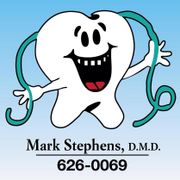
Toothaches are a common dental issue. Though they are occasionally minor and might go away on their own, you may need treatment from a dentist. Here are some common symptoms that might indicate more serious underlying issues and what a dentist can do to help.
Sensitivity
Sensitivity while chewing or consuming hot or cold foods and beverages are common toothache symptoms. It can happen as a result of tooth decay that causes the enamel, or outer tooth layer, to weaken. When this happens, the enamel will no longer adequately protect inner nerves and pulp. While eating or drinking, the nerves and pulp might become irritated, leading to tenderness. If gum recession exposes root surfaces, the latter may make contact with foods and beverages, causing sensitivity.
A dentist can drill out decayed segments before filling them to protect nerves and pulp, which should reduce sensitivity. They may also provide root planing to clean tooth surfaces beneath the gum line, which will prevent recession from worsening. If necessary, a dentist will provide tissue grafting to restore the gums and cover roots to protect them.
Pain

If decay goes untreated, it may spread and cause holes to form in the teeth, known as cavities. Bacteria can enter these openings and infect tooth pulp, leading to sharp or throbbing pain. This can also occur if a tooth develops fractures due to physical trauma. Alternatively, a loose filling may move around inside the tooth, making contact with nerves and resulting in pain.
A dentist can drill out decay and infected pulp before filling the tooth. If this requires removing a significant portion of the tooth's structure, they may cement a crown over it. They can also place a veneer, or tooth-shaped shell, over a cracked tooth to keep out bacteria and other substances that might cause discomfort. They can also remove and replace a damaged filling.
Pressure
An abscess is a pocket of pus that might develop around tooth roots in response to a bacterial infection. The pus puts pressure on the surrounding tissue and bone. Pressure can also occur as a result of bruxism, which refers to grinding or gnashing the teeth. This may lead to aches and pressure in the teeth, jaw, and face.
A dentist can perform a root canal to drain pus and eliminate infected tooth material. They'll add a crown to the tooth to restore its structure and keep out harmful microbes. If you grind your teeth, they can create a custom mouth guard. This device separates the upper and lower teeth, preventing them from making contact, reducing pressure and pain.
If you ever have a toothache, Mark Stephens DMD can help. This dentist provides fillings, crowns, and tooth extractions along with routine exams and cleanings to clients throughout Richmond, KY. Call (859) 626-0069 to book an appointment with this dentist, and visit the website to learn more about how this dental office can keep your teeth, mouth, and gums healthy.
About the Business
Have a question? Ask the experts!
Send your question

